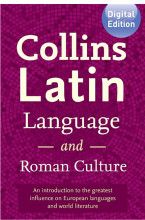Major Movements in Psychology - Intelligence Testing
10 important questions on Major Movements in Psychology - Intelligence Testing
What does it mean to say that an IQ test is normed?
Thus IQ scores reflect a person's percentile rank according to the tests' norms.
What is the Wechsler Adult Intelligence (WAIS) IQ test?
- Vocabulary
- Similarities
- Information
- Arithmetic
- Digit Span
- Block Design
- Matrix Reasoning
- Visual Puzzles
- Digit Symbol
- Symbol Search
Five supplemental tests include:
- Comprehension
- Letter-Number Sequencing
- Picture Completion
- Figure Weights
- Cancellation
What are the four index scores of the WAIS-IV?
- The Verbal Comprehension Index relfect the ability to express abstract ideas in words.
- The Perceptional Reasoning Index reflects the ability to process visual and spatial information.
- The Working Memory Index suggests the ability to hold and manipulate information in memory.
- The Processing Speed Index indicates the ability to process information rapidly.
- Higher grades + faster learning
- Never study anything twice
- 100% sure, 100% understanding
Does the WAIS measure intelligence?
Is there agreement on what intelligence means?
Loosely, we can define intelligence to refer to the ability to process information in a way that allows individuals to adapt to their environment. This definition suggests, however, that intelligence may vary according to the environment.
Because the nature of intelligence is inherently dependent on an individual's environment, there are chronic problems with cultural bias in intelligence tests.
What are the best ways to reduce cultural bias in IQ tests?
Are there other kinds of intelligence that the WAIS doesn't measure?
Similarly, Daniel Goleman has written extensively about emotional intelligence, the ability to process emotional and interpersonal information effectively.
Who devised the first intelligence test?
What does mental age mean?
While observing his own children develop new cognitive skills as they grew, Binet recognized that intelligence could be measured developmentally. By comparing the test performance of a child with the age at wich such performance was expected, he could calculate a mental age for each child.
What were the problems with the early IQ tests?
Later tests were extremely culturally biased, serving the anti-immigrant bias of the first several decades of the twentieth century.
The question on the page originate from the summary of the following study material:
- A unique study and practice tool
- Never study anything twice again
- Get the grades you hope for
- 100% sure, 100% understanding
































